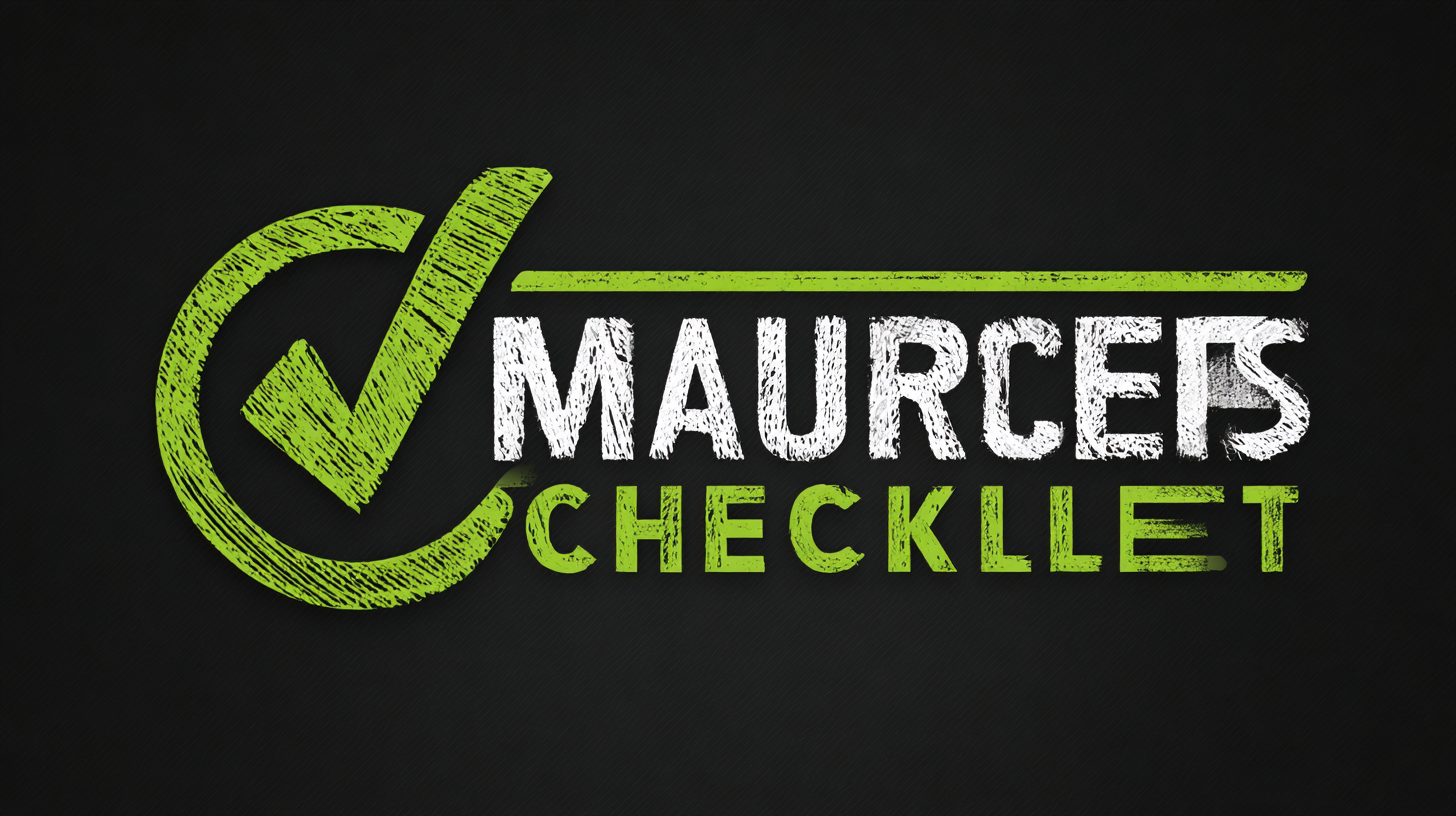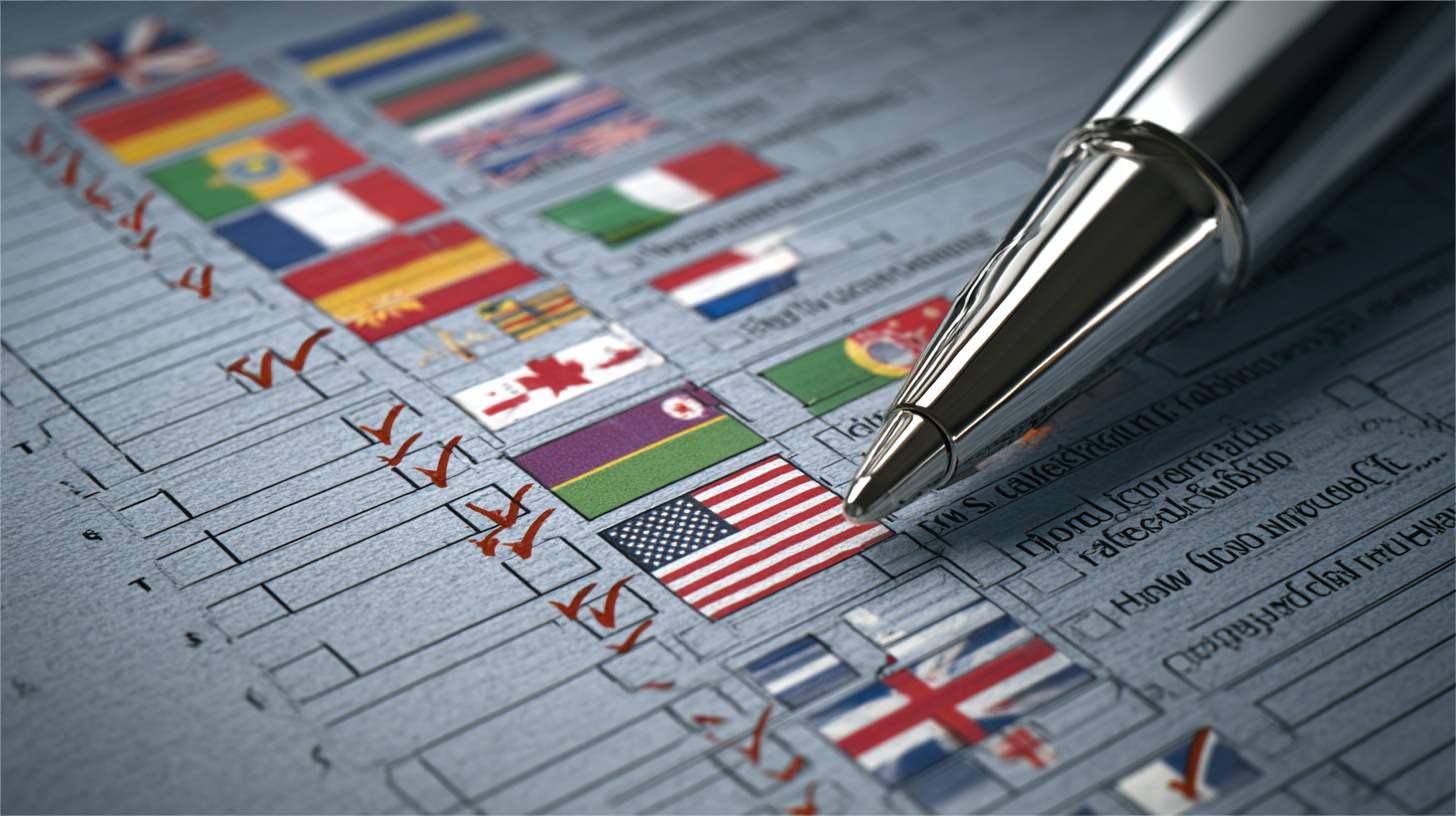
Ultimate Checklist for Identifying the Best Manufacturers for Global Procurement
In today's globalized economy, selecting the right manufacturers is paramount for successful procurement strategies. According to a recent report by McKinsey & Company, companies that effectively manage their supplier relationships can achieve cost savings of up to 25% and improve operational efficiency significantly. The manufacturing landscape is continuously evolving, with a notable shift towards value-driven sourcing and sustainability. As per a study published by Deloitte, 79% of organizations indicated that they are actively seeking to enhance their supply chain resilience and transparency, making the identification of reliable manufacturers more critical than ever. This ultimate checklist aims to provide guidance on how to navigate the complex process of identifying the best manufacturers, ensuring that businesses can optimize their global procurement efforts and drive competitive advantage.

Understanding the Importance of After-Sales Service in Global Procurement
When engaging in global procurement, the importance of after-sales service cannot be overstated. After all, establishing a successful partnership with manufacturers extends well beyond the initial purchase. Effective after-sales support ensures that any issues with the product can be promptly addressed, significantly impacting customer satisfaction and loyalty. This is particularly crucial in international contexts where time zone differences and cultural barriers can complicate communication. A manufacturer that prioritizes after-sales service demonstrates their commitment to product quality and customer care, which can ultimately lead to a more stable and productive business relationship.

Moreover, comprehensive after-sales service can provide manufacturers with valuable feedback, enabling them to refine their products and services continually. This feedback loop can enhance product development and innovation, as manufacturers can adjust their offerings based on real-world usage and customer experiences. Additionally, a responsive after-sales service can reduce the operational risks associated with global procurement, ensuring that any logistical challenges or product defects are mitigated swiftly. Thus, when evaluating potential manufacturing partners, it is crucial to assess their after-sales capabilities to ensure a smooth and successful procurement experience.
Evaluating Manufacturer Support: Key Factors to Consider
When evaluating manufacturers for global procurement, understanding the level of support they provide is crucial. One key factor to consider is their responsiveness to inquiries and issues. A manufacturer that communicates efficiently and promptly not only demonstrates professionalism but also indicates their commitment to fostering a strong partnership. Assessing their customer service channels can help you identify whether they prioritize client satisfaction and are willing to provide ongoing support throughout the procurement process.

Another vital aspect is the availability of technical assistance and training. Manufacturers that offer comprehensive support in terms of product training, installation guidance, and troubleshooting can significantly ease the learning curve for your teams. This not only minimizes downtime but also ensures that your operations run smoothly. Moreover, evaluating their after-sales support, such as warranty policies and maintenance services, reflects a manufacturer's reliability and dedication to maintaining long-lasting relationships with their clients. By focusing on these factors, you can ensure that you choose a manufacturer capable of meeting both your immediate and future needs.
Analyzing Repair Costs and Their Impact on Overall Procurement Strategy
When assessing manufacturers for global procurement, understanding repair costs is crucial to formulating an effective procurement strategy. Repair costs not only affect the immediate financial outcome but also contribute to the overall lifecycle cost of products. A thorough analysis of these costs can reveal insights into potential hidden expenses that could arise during the contract duration. This analysis often includes factors such as warranty terms, service response times, and the manufacturer's historical performance regarding product reliability.
Incorporating repair costs into the decision-making process allows procurement teams to make more informed choices when selecting suppliers. Effective manufacturers may have higher upfront costs; however, they often provide superior durability and lower repair frequencies, ultimately reducing long-term operational expenses. Therefore, evaluating a manufacturer's capability to manage repairs efficiently can lead to significant savings and a smoother procurement process, ensuring that organizations invest in partners who emphasize quality and service. This proactive approach not only aligns manufacturing practices with procurement strategies but also drives greater value from global sourcing efforts.
Ultimate Checklist for Identifying the Best Manufacturers for Global Procurement
| Criteria | Weight (% of Total) | Score (1-10) | Weighted Score |
|---|---|---|---|
| Manufacturing Capability | 25% | 8 | 2.0 |
| Repair and Maintenance Costs | 20% | 7 | 1.4 |
| Quality Assurance Processes | 25% | 9 | 2.25 |
| Delivery and Logistics | 15% | 6 | 0.9 |
| Financial Stability | 15% | 8 | 1.2 |
| Total | 100% | 7.75 |
Comparing After-Sales Services Across Different Manufacturers
As businesses increasingly shift towards service-oriented models, after-sales services have emerged as a crucial differentiator for manufacturers in the global procurement landscape. A recent study highlights that aftermarket services represent a significant growth opportunity, with many manufacturers having the potential to tap into a "gold mine" by targeting the right customers strategically. This necessitates a comprehensive and integrated approach that aligns aftermarket services with core business strategies. Successful manufacturers are those who understand their service offerings and can leverage them to enhance customer satisfaction and loyalty.
Data from a 2024 industry report reveals that customer satisfaction regarding after-sales service has shown notable improvement this year, yet many dealers still grapple with delivering a consistently high-quality experience. This underscores the importance of investing in robust service capabilities and training staff effectively. Additionally, the automotive sector is witnessing shifting consumer expectations, where companies are not only selling products but are increasingly focusing on delivering exceptional service experiences post-purchase. As manufacturers navigate this changing landscape, a strong emphasis on after-sales service could mean the difference between retaining customers and losing them to competitors.
Building Long-Term Relationships with Reliable Manufacturers Through Support Services
Building long-term relationships with reliable manufacturers is crucial for success in global procurement, particularly in today's volatile economic climate. Research indicates that strong supplier collaboration can significantly enhance supply chain resilience, with companies reporting up to a 20% increase in operational performance when fostering closer ties with their suppliers. In these challenging times, maintaining these relationships requires understanding and addressing emerging customer needs while navigating inflation and rising expectations.
Tip 1: Invest in ongoing communication with your manufacturers to ensure transparency and alignment on objectives. Regular check-ins can help identify potential challenges early and foster a collaborative environment.
Experience matters in maintaining loyalty; companies that prioritize a human-centric approach in their partnerships showcase higher satisfaction levels. Data suggests that a positive experience with suppliers correlates with increased retention rates, reflecting the importance of creating a supportive ecosystem where both parties can thrive.
Tip 2: Implement feedback loops with your manufacturers to continuously improve service quality and address any concerns promptly. This proactive approach can build trust and loyalty over the long term.
Moreover, strategic partnerships can be a game changer in expanding market reach and driving innovation. Businesses that leverage shared resources not only reduce costs but also enhance brand credibility through collaboration with trusted partners.
Tip 3: Attend industry engagements and networking events to strengthen these strategic relationships, as face-to-face interactions can lead to deeper connections and opportunities for joint ventures.
